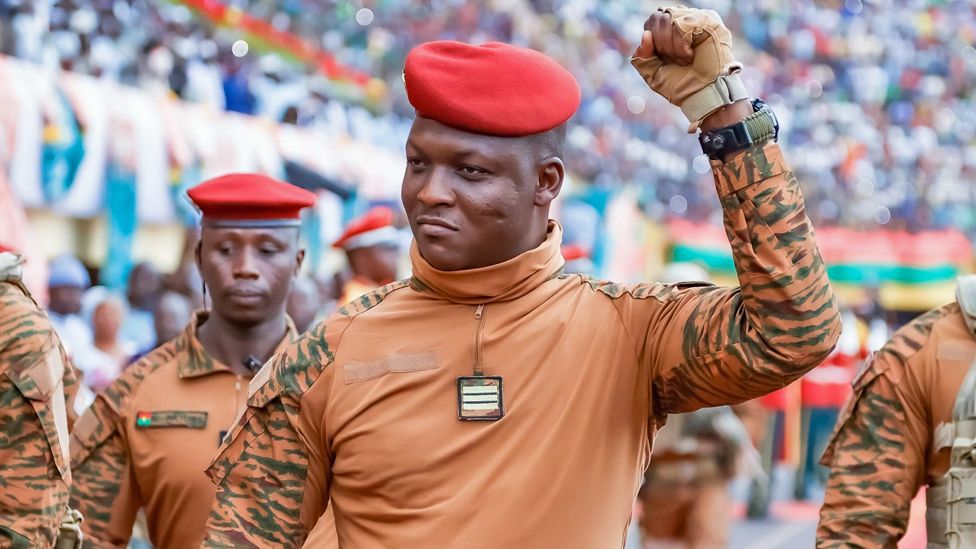Capt Ibrahim Traoré: The Rising Star of Burkina Faso’s Leadership
At just 37 years old, Captain Ibrahim Traoré has emerged as Burkina Faso’s military leader, captivating audiences across the African continent and beyond. With a charismatic personality, Traoré presents himself as a pan-Africanist devoted to liberating his country from the perceived shackles of Western imperialism and neo-colonialism. His rhetoric has garnered significant attention, positioning him as a modern-day hero comparable to influential figures like Thomas Sankara, a celebrated revolutionary from Burkina Faso.
“His impact is substantial. Political figures and intellectuals from countries like Kenya regard him as a transformative figure,” said Beverly Ochieng, a senior researcher at Control Risks. She noted that Traoré’s messages resonate deeply during a time when many Africans are critically reassessing their historical ties to the West amidst prevalent poverty in resource-abundant regions.
A Shift in Alliances
Since seizing power in a coup in 2022, Traoré’s leadership has marked a departure from a historical reliance on France, fostering stronger ties with Russia instead. This new alliance has seen the introduction of Russian paramilitary forces and the adoption of leftist economic strategies. For instance, the establishment of a state-owned mining enterprise mandates foreign firms to allocate a 15% equity stake to the government and promote local skill development, effectively altering the mining landscape in Burkina Faso.
In late April, the junta facilitated a license for the Russian mining company, Nordgold, to expand its operations in the country’s burgeoning gold sector. Traoré has also initiated groundbreaking projects, like constructing a national gold refinery and establishing the first national gold reserves in history. However, Western firms are struggling under the new regime, with Sarama Resources initiating arbitration after having its exploration license revoked.
Popularity on the Rise
Traoré’s radical reforms have significantly elevated his status among the African populace. “He’s arguably the most popular leader in Africa today,” stated Enoch Randy Aikins from the Institute for Security Studies. His appeal has been amplified by social media, where misleading content has contributed to his revolutionary image. Supporters view him not merely as a military ruler but as a messenger of change.
| Aspect | Impact |
|---|---|
| Shift in Alliances | Stronger ties with Russia, reduced dependence on France |
| Economic Policies | Increased domestic ownership in mining, establishment of national gold reserves |
| Public Image | Labeled as a revolutionary leader, aligned with the youth’s aspirations |
Controversial Leadership
Despite his rising fame, Traoré faces significant challenges. His administration has been criticized for failing to address a ten-year-long Islamist insurgency that has exacerbated regional tensions. Furthermore, there have been reports of heavy-handed tactics against dissenters, which include cracking down on media and civil society, as well as punishing critics by sending them to the front lines of conflict.
Despite these controversies, Traoré’s charisma, coupled with a youthful demographic in Burkina Faso, positions him as a relatable figure. “He embodies the spirit of a younger generation seeking change,” noted Rinaldo Depagne from the International Crisis Group. His political acumen allows him to instill hope in a nation beleaguered by conflict, drawing parallels with leaders from a more revolutionary past.
With growing domestic support and noteworthy attention from the international community, Captain Ibrahim Traoré continues to solidify his image as a transformative leader. As Burkina Faso moves forward, the unfolding narrative will determine whether he achieves a lasting legacy or follows a turbulent path that has defined many political figures before him.


